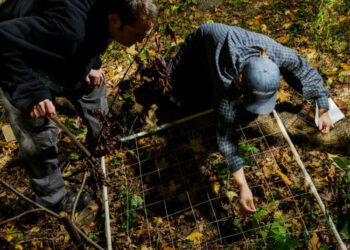Britney Spears Is Arrested by California Highway Patrol
Britney Spears was arrested by California Highway Patrol on Wednesday and held overnight in Ventura County, Calif., according to online...
OpenAI launches GPT-5.4, its most powerful model for enterprise work—and a direct shot at Anthropic
OpenAI has released GPT-5.4, a new AI model the company says is its most capable system to date for professional...
Should New York City Burn Its Parks? This Scientist Thinks So.
Aaron Sexton, an assistant professor of plant science from Cornell University, was addressing employees of the city’s parks department last...
Crimson Desert Confirmed to Use New PS5 Pro Feature
Crimson Desert is following in the recent footsteps of Resident Evil Requiem by putting the PS5 Pro’s latest feature to...
Feds say 18th Street boss ‘Moms’ led gang for imprisoned Mexican Mafia member
When a Los Angeles drug dealer wouldn’t pay taxes to the 18th Street gang, the order to kill them allegedly...
House Republicans Tell Gonzales to Quit Re-Election Campaign
House Republican leaders on Thursday called on Representative Tony Gonzales of Texas to suspend his re-election campaign after he admitted...
The Eye-Watering Multibillion-Dollar Cost of Trump’s War Revealed
The Trump administration’s war in Iran is reportedly costing American taxpayers $1 billion a day—meaning the overall total could top...
Trump Group Accused of Plotting to Hijack America’s Birthday for Major Grift
A Trump-aligned group set up by the White House to apparently glorify the president is setting off alarm bells among...
‘Protector’ Review: She Knows How to Give Life, and How to Take It
Imagine a feminist spin on “Taken,” this time with a mother in the driver’s seat. “Protector,” directed by Adrian Grunberg,...
Salesforce CEO says Block’s cuts shouldn’t fuel worries of mass layoffs: ‘That company has its own unique issues’
Salesforce CEO Marc Benioff says up to 50% of his company's work is now being performed by AI. Really? Brontë...














